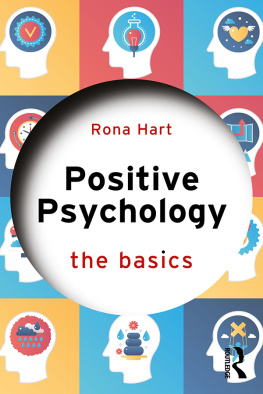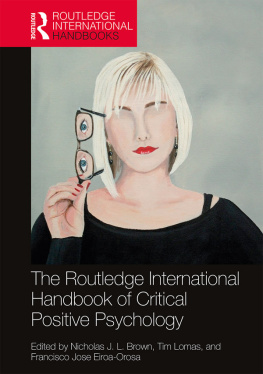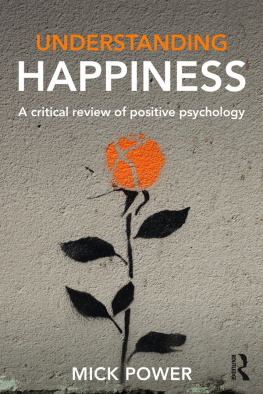Oksana Yakushko - Scientific Pollyannaism From Inquisition to Positive Psychology
Here you can read online Oksana Yakushko - Scientific Pollyannaism From Inquisition to Positive Psychology full text of the book (entire story) in english for free. Download pdf and epub, get meaning, cover and reviews about this ebook. year: 2019, publisher: Springer International Publishing, genre: Religion. Description of the work, (preface) as well as reviews are available. Best literature library LitArk.com created for fans of good reading and offers a wide selection of genres:
Romance novel
Science fiction
Adventure
Detective
Science
History
Home and family
Prose
Art
Politics
Computer
Non-fiction
Religion
Business
Children
Humor
Choose a favorite category and find really read worthwhile books. Enjoy immersion in the world of imagination, feel the emotions of the characters or learn something new for yourself, make an fascinating discovery.
- Book:Scientific Pollyannaism From Inquisition to Positive Psychology
- Author:
- Publisher:Springer International Publishing
- Genre:
- Year:2019
- Rating:4 / 5
- Favourites:Add to favourites
- Your mark:
- 80
- 1
- 2
- 3
- 4
- 5
Scientific Pollyannaism From Inquisition to Positive Psychology: summary, description and annotation
We offer to read an annotation, description, summary or preface (depends on what the author of the book "Scientific Pollyannaism From Inquisition to Positive Psychology" wrote himself). If you haven't found the necessary information about the book — write in the comments, we will try to find it.
Scientific Pollyannaism From Inquisition to Positive Psychology — read online for free the complete book (whole text) full work
Below is the text of the book, divided by pages. System saving the place of the last page read, allows you to conveniently read the book "Scientific Pollyannaism From Inquisition to Positive Psychology" online for free, without having to search again every time where you left off. Put a bookmark, and you can go to the page where you finished reading at any time.
Font size:
Interval:
Bookmark:


This Palgrave Macmillan imprint is published by the registered company Springer Nature Switzerland AG.
The registered company address is: Gewerbestrasse 11, 6330 Cham, Switzerland
With extraordinary passion and spirit, Yakushko traces the long and tragic history of the role science plays in the demand to be happy. She shows how this demand emanates from a white scientific elite that wreaks havoc upon all those on whom it turns its destructive gaze. Coining the powerful term, scientific pollyanism, she here deconstructs any claim to being evidence-based that these racist and (hetero)sexist uses of science make. In so doing, she redeems scientisms many victims.
Lynne Layton, Ph.D., Assistant Clinical Professor of Psychology, Harvard Medical School, USA, and author of Whos That Girl? Whos That Boy?
Oksana Yakushko has written a well-researched, historically sweeping, and in fact courageous book that is greatly needed during this dark time in the world-wide rise of the far-right. Her book reveals the deep connection between the forces of racism, misogyny, and classism, on the one hand, and the corrupt uses of science in psychology, on the other. Yakushko critiques the ongoing history of silencing those who suffer by ignoring the sociopolitical contexts that cause the suffering. Creatively, Yaskusko argues that false narratives of happiness, pejorative diagnoses, and the weaponizing of a scientistic cognitivism in service of neoliberal governmentality go hand in hand. Please read this book.
Philip Cushman, Ph.D., author of Constructing The Self, Constructing America: A Cultural History of Psychotherapy
In her fascinating new book, Oksana Yakushko provides a carefully researched study of the politics of positivity. The emphasis in contemporary culture on positive emotional states serves a status quo that separates happiness from wellbeing and marginalizes examination of suffering from the injustices of social contexts. Indeed, argues Yakushko, an insidious argument is promoted by the happiness industry to suggest that those who are rather out of it suffer some biological or racial fault. Scholarly, incisive, tenacious, provocative, this book will stimulate discussions in many fields and is a compelling example of the power of the pen.
Christopher Bollas, Ph.D., psychoanalyst and the author of, most recently, Meaning and Melancholy
This book is dedicated to Marcus, Kai, and Sonia.
Promises of a good and happy life, in this world or the next, have always been central to human experience. Answers to the question, how do I achieve a happy life, how do I live the good life , have been proffered by religious leaders, philosophers, politicians, writers, and, since the establishment of Western scholarship (Ahmed , ).
This book addresses a specific emphasis on positivity (e.g., happiness , optimism , flourishing , well-being ) based on Western scholarly theories, empirical data, and scientific rhetoric, which reflect a concerted focus on defining, predicting and controlling human emotional experiences. This work expands on contemporary contributions to the study of enforced happiness and compulsory optimism in the cultural, political, economic, and social spheres (Ahmed , ), but also seek to document how cultural rhetoric about human well-being has become driven by according-to-research ideologies. Science and scientism have become among the most influential forces in determining human values and experiences in Western cultures. The guidelines for what constitute a happy or good life stems from scholarly productions rather than sacred texts. These empirically driven admonitions often (through various methods) deny, negate, or villify the full spectrum of human emotional experience while simultaneously requiring a disavowal of human social context. In short, human beings are shamed and chided toward always feeling cheerful, regardless of their individual, social or relational circumstance. They are shaped into Pollyannas.
This scholarly emphasis on achieving happiness through enforced positive emotional states and sets of behavior , I argue, is made in service of maintaining the socio-political status quo. According to this perspective, happiness and well-being are treated as distinct and measurable individual states. Moreover, human affective reactions are presented as disconnected from human rights while injustice and suffering are minimized or denied. In turn, access to happiness is promoted as supposedly achievable by those who possess particular characteristics based on either superior personal predispositions (e.g., divinely or biologically ordained goodness ) or concerted behavioral changes (e.g., self-control , determined efforts to use empirical self-help techniques). These human capacities to achieve optimism , I note, are often claimed by scientists to be lacking for entire groups (e.g., women, racial minorities) because of their supposed biological deficiencies or failures to develop control over personal affective states. Lastly, what constitutes happiness is claimed to be knowable exclusively through scientific discovery rather than critical recognition of differing standpoints.
Font size:
Interval:
Bookmark:
Similar books «Scientific Pollyannaism From Inquisition to Positive Psychology»
Look at similar books to Scientific Pollyannaism From Inquisition to Positive Psychology. We have selected literature similar in name and meaning in the hope of providing readers with more options to find new, interesting, not yet read works.
Discussion, reviews of the book Scientific Pollyannaism From Inquisition to Positive Psychology and just readers' own opinions. Leave your comments, write what you think about the work, its meaning or the main characters. Specify what exactly you liked and what you didn't like, and why you think so.











